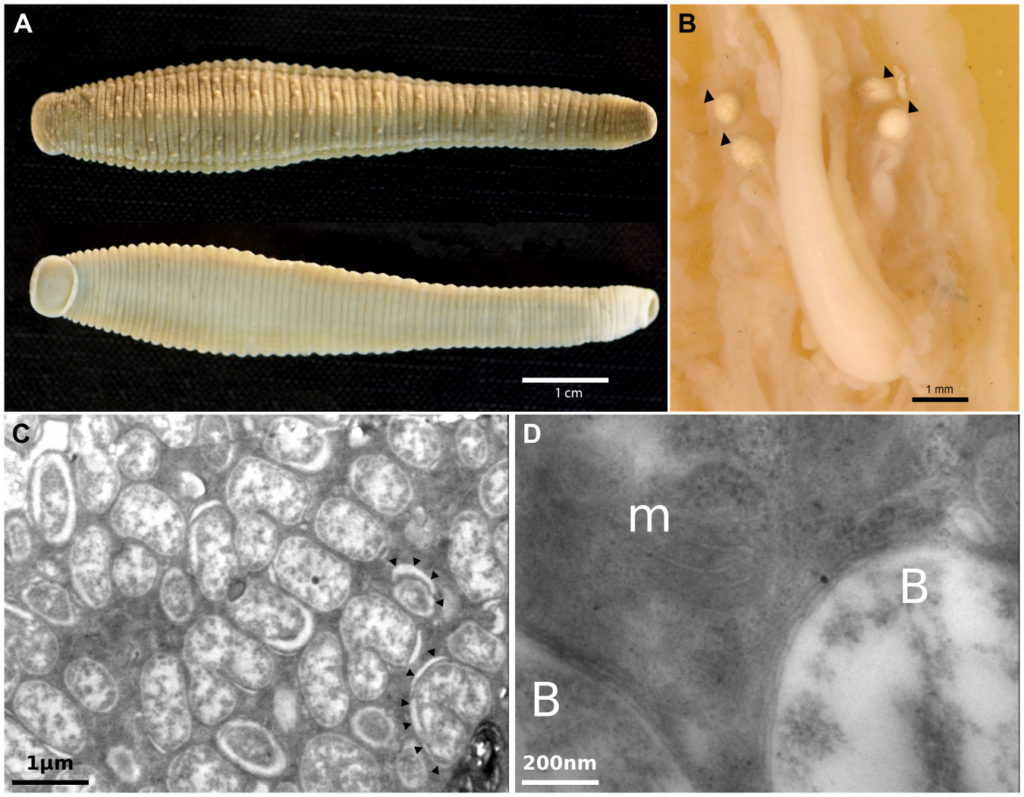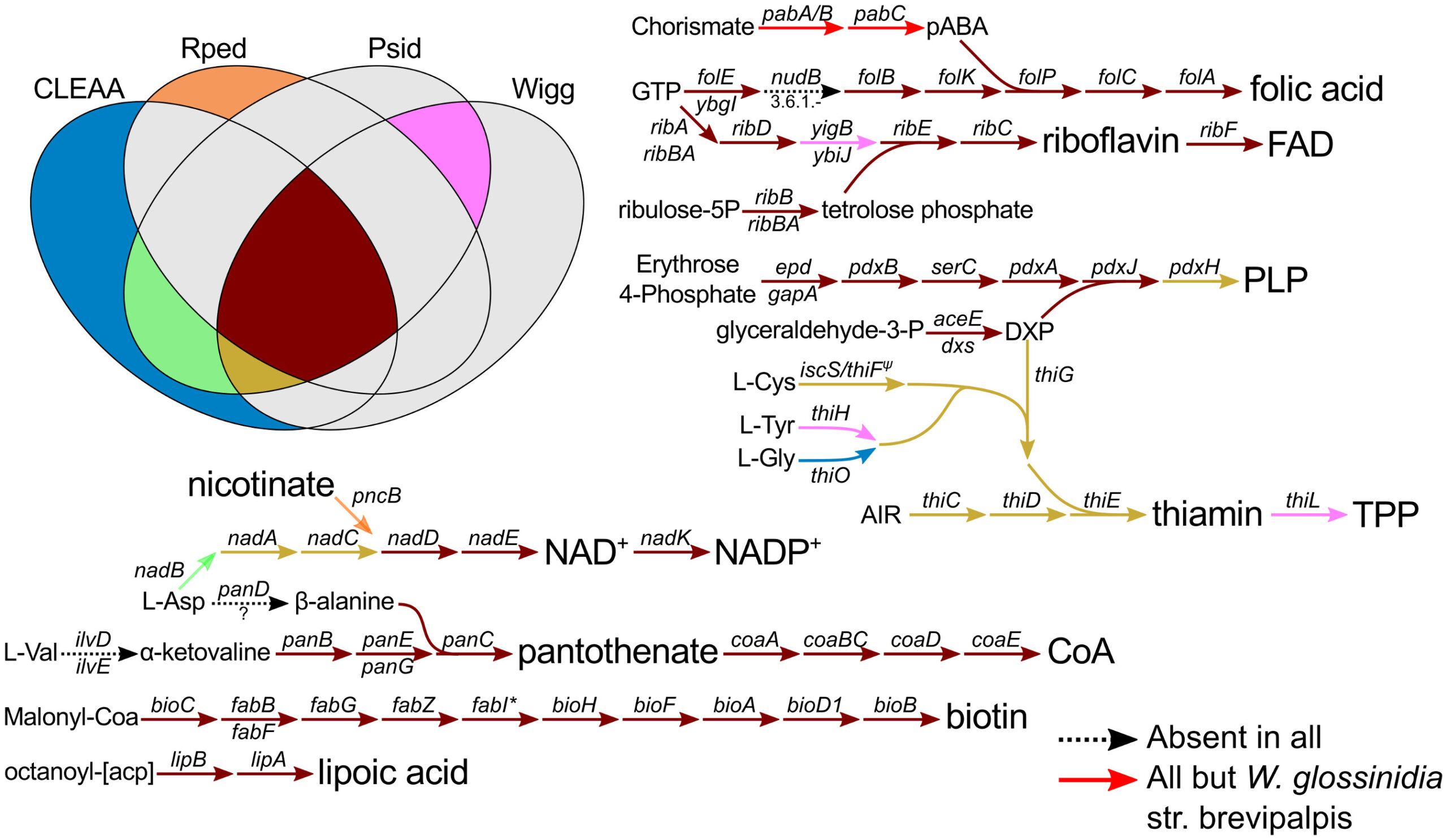
👷 Under construction….

Strict blood-feeding leeches are confronted with a strong B-vitamin deficiency and thus rely on bacterial symbionts to supplement their unbalanced diet. Recent evidence showed that the Mexican leech Haementeria officinalis (A) houses, in distinct specialised organs attached to the oesophagus (B), intracellular Providencia siddallii symbionts (C, D), which have a highly reduced genome but maintain genes required for B vitamin biosynthesis (Manzano-Marín et. al. 2015). Interestingly, the metabolic steps preserved in these pathways are highly congruent with those present in obligate endosymbionts from blood-feeding arthropods, such as the Coxiella-like endosymbiont of the tick Amblyomma americanum (CLEAA), Riesia pediculicola (Rped), and Wigglesworthia (Wigg). The presence of such nutritional symbionts in leeches is not restricted to H. officnalis, but it is actually widespread across blood-feeding members of the Glossiphoniidae and some Oceanobdeliformes.

I aim to establish the Mexican leech as a model system for studying the intricacies of nutritional blood-feeding symbioses. To achieve this, I will use different approaches:
- High quality genome sequencing of the Mexican leech Haementeria officinalis.
- Full genome sequences of the Providencia symbionts of several Haementeria species.
- Genome-based metabolic inference of the host-symbiont “cross-talk” for the production of B-vitamins in the Providencia–Haementeria symbiosis.
This project was financed by a Marie Skłodowska-Curie Postdoctoral Fellowship (H2020-MSCA-IF-2018 LEECHSYMBIO, grant agreement 840270), and (despite COVID-related setbacks and re-worked research aims) was developed at the Centre for Microbiology and Environmental Systems Science (CMESS) from the University of Vienna with the collaboration of Dr. Alejandro Oceguera Figueroa from the Biology Institute (IB) at UNAM, Mexico.
 Biology and Evolution of Symbiosis (BESymb)
Biology and Evolution of Symbiosis (BESymb)